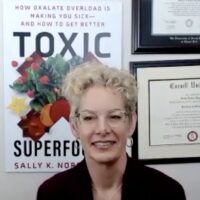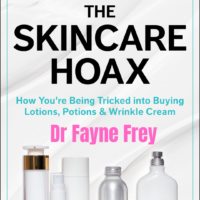Exciting 'lightning strikes' in longevity biotech
Something completely different on this episode of The Big Middle, a fascinating foray into the science of the future of ageing from the first-ever Longevity Leaders conference in London.
My guest’s vision of a future morning involves popping pills to slow the process of ageing and prevent diabetes, Alzheimer’s, cancer and other diseases.
James Peyer trained as a stem cell biologist, now he’s a venture capitalist. He heads up Apollo Ventures, seeding the companies making the breakthroughs to, one day, make those pills.
For the first time in our evolution, the diseases that develop with age outweigh infectious diseases as our biggest killers. James shares insights and approaches to fighting the deadly diseases related to ageing.
Hear what when
- What inspired him as a teenager to become a scientist researching age-related diseases
- Origins of his fund
- Areas of ageing research that most excite him
- Cells that go through “a polite suicide” then cause inflammation
- Path to humans in clinic from mice in lab?
- One of the companies he funds is making progress researching the mTOR pathway – what it is, what research is indicating, how it links to intermittent fasting
- How longevity science field is “exploding” – NAD+, sirtuins, telomeres
- How will they know any future therapeutics to prevent age-related diseases actually work?
- His goal isn’t immortality, it’s the prevention of age-related diseases
“Something very, very exciting is afoot here. But instead of prognosticating about immortal humans and aliens, I like to look back instead. Think about how 100 years ago the most common causes of death were tuberculosis, influenza and pneumonia and we used to think of those diseases as, oh my goodness, you have swollen lymph nodes or a fever, let’s treat your lymph nodes or your fever, and then when we realised those were caused by viruses and bacteria, we were able to invent new tools, new medicines – vaccines and antibiotics – targeting those things and eliminate those diseases. And people lived longer and healthier than ever before. And that’s when cancer, Alzheimer’s and heart disease became the largest human killers. Now we’re at a similar point. We’ve gained an understanding, really just in the last decade, of what the core causes behind these different diseases of ageing are and the new tools we’re developing, we think have the potential to at least prevent, maybe in some cases even reverse, these diseases, which means that we’ll live longer to the next barrier.”
- Describes himself as a philosophical “moderate” in the field of longevity biotech
“I think that disease and human suffering is something that should be addressed and combatted whenever possible. When people ask me how long should people live, I say that that’s usually not the sort of question we should be asking. Instead, we should be saying, if we’re healthy, do we want to live until tomorrow. And if the answer is yes, then we should be allowed to do so.”
- Ethics of Silicon Valley tech billionaires, and others, trying to cheat death?
- Language matters when talking up longevity therapeutics of the future
“If you were to conduct a survey that asked ‘Do you want to take an anti-ageing pill?’, you would get some people but not a huge percent of the population saying ‘yes’. If you conducted the same survey and said, ‘Hey, do you want to take a pill that reduces your chance of getting Alzheimer’s disease?’, then everybody says ‘yes’.”
- Doesn’t use discredited term anti-ageing when speaking of potential benefits of longevity biotech industry
- Define ‘old’?
- What he does/takes to slow his own ageing?
Links
- Can we defeat the diseases of ageing? James’ TEDx Talk Stuttgart 2017
- James’ fund – Apollo Ventures
- Opinion piece James wrote for leapsmag.com Feb 2019: “Young Blood” Transfusions Are Not Ready For Primetime–Yet
- James on Twitter






Thoughts?